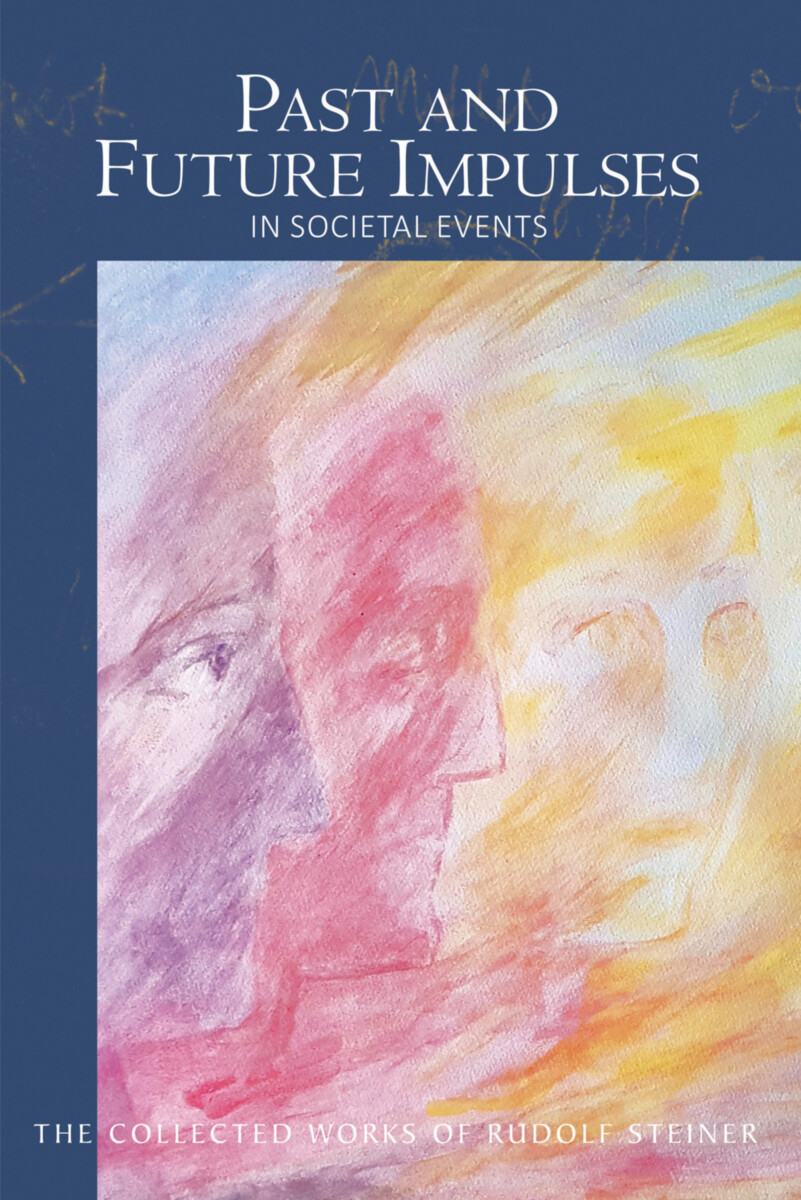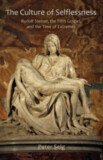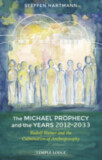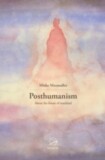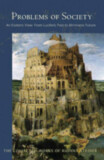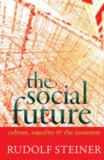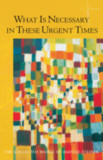Past and Future Impulses in Societal Events
(CW 190)
- Publisher
Rudolf Steiner Press - Published
26th September 2023 - ISBN 9781855846579
- Language English
- Pages 252 pp.
- Size 6" x 9.25"
12 lectures to members, Dornach, March 21 – April 14, 1919 (CW 190)
“Never has it been so hard for people to accept someone else’s opinion or to follow their reasoning; never was pig-headedness with regard to sticking to one’s own opinions as great as it is today. And if it happens that one draws attention to the one-sidedness of every human opinion, indeed even to the one-sidedness of everything we call human truth, if it happens that one elucidates things from different sides, one is accused of expressing different opinions at different times. We won’t come to a healthy socialism based on a social understanding of the human being if t his ability of one individual to adapt to another doesn’t also enter our souls.” — Rudolf Steiner (March 21, 1919)
Barely four months after the end of World War I, with Europe in chaos and exhausted from years of conflict, Rudolf Steiner offered these lectures as a call for hope and renewal. Despite ongoing social troubles around the world, he knew that people had an opportunity to reorganize society in a new way. Steiner responded to this prospect by offering suggestions for creating innovative social structures in harmony with people’s inner needs.
Steiner states that humanity as a whole faces a great challenge that constitutes “crossing the threshold” to the spiritual world. This means that an evolutionary separation is taking place within the human soul among our thinking, feeling, and will. Before this can happen in a healthy way, the outer makeup of society must mirror and support our internal evolution. Steiner points to the urgent need to “threefold” society, separating the activities of culture, economics, and politics. This is a subconscious demand, he asserts. It is not an excuse for inventing cranky ideas in a sect, but for shedding light on what is universally needed!
“...the German word Geist...can mean mind or spirit in a broad sense, or both at the same time. In the context of these lectures, Steiner uses the term to describe a very wide sweep of human activity.... Depending on context, Geistesleben can therefore be translated as ‘the life of thought,’ ‘intellectual life,’ ‘spiritual life,’ cultural life,’ or synonyms of these. I understand the term to cover the areas of life in which individuals are free to develop their own individual capacities and talents, thus enriching civilization and culture in general.” — Paul King (from his introduction)
These important lectures cover numerous themes, including overcoming class distinctions; administration of money, technology and capitalism; antisocial tendencies of nationalism; and future management of international relations.
This book is a translation from German of Vergangenheits- und Zukunftsimpulse im sozialen Geschehen. Die geistigen Hintergründe deer sozialen Frage – Band II (GA 190).
CONTENTS & LECTURE SYNOPSES:
Introduction by Paul King
1. Dornach, March 21, 1919: Humanity’s longing for spirituality. The destructive effect of scientific thinking on the social organism. The formation of capital as a hotbed of revolution. The threefold social order as a subconscious demand. Overcoming class distinctions. Administration of money. The gold standard.
2. Dornach, March 22, 1919: The human organism and the social organism. The three systems. Nationalism as an antisocial tendency. The decline of the intellectual-spiritual life that must be freed from the economy and legislature. The over expansion of the economic life. Technology and capitalism. Future management of international relations.
3. Dornach, March 23, 1919: The activity of the angels, archangels, and archai in the life of thought, the legal system, the economic system. The need to understand reincarnation. The longing in souls descending to earth for the destruction of materialistic culture.
4. Dornach, March 28, 1919: Children being born at the beginning of the twentieth century. The deceased’s understanding of language, progressing from the abstract to the concrete. The connection of the social question with the inner life of the soul. The need to develop a pictorial image of the human spiritual being. Listening to the genius of language. The strong connection between eurythmy and our cultural development. A return to a concrete element in language through pictorial thinking is a task of the fifth post-Atlantean epoch. The position of the human being within the Trinity.
5. Dornach, March 29, 1919: The underground spiritual factors of the social question. The role of the unconscious and the subconscious in people’s life together in society. The cultivation of an inner understanding of society needs to become part of our school education. The imaginative spirit culture of the future needs to develop from the life of the nations instead of from the abstractions of the present day. In overlapping epochs, the impulses of the inspiritive and intuitive life of the sixth and seventh epochs are already reaching into the present. The creativity of the genius of language and individual creativity. The speech of nature. The three elements of language.
6. Dornach, March 30, 1919: The social question as a world historical challenge of our time. Our future task is to let go of ourselves. Through the development of personality, people learn to understand one another less and less. The rejection of spiritual life leads to naturalism in art. The soul element in art. Social understanding through interest in things that go beyond our own narrow sphere of life.
7. Dornach, April 5, 1919: Superficiality is leading modern humanity into confusion. The wave of confusion caused by ahrimanic influences. This confusion is used by certain people for their own ends. Since 1721, there has been a loosening of the connection between the human physical heart and the etheric heart. people who want to have only a naïve feeling relationship to the spiritual world make the heart of humanity materialistic. The proper relation between the etheric heart and the spiritual world when people seek spiritual knowledge.
8. Dornach, April 6, 1919: The Question “What is the human being?” is asked most earnestly in Eastern Europe. Bakunin, Gorky. Nietzsche’s Übermensch is the great narcotic. It is impossible to come to a proper view of the human being through the culture of the nineteenth century. Three parts of human life: 1) talents; 2) what unfolds between individuals; 3) experience. Becoming experienced expresses what is individual in the human being; from experience, the question “What is the human being?” can be answered.
9. Dornach, April 11, 1919: The whole of humanity is about to cross the threshold. Because of this, the thinking, feeling, and willing of humanity as a totality will become more independent. Fritz Mauthner. Natural science owes its greatness to the fact that it is, and is meant to be, thought-less. The life of ideation as a shadow of reality. Through thought will, the soul must carry these shadow images into something that still remains mostly unconscious in people. Humanity’s passage over the threshold causes a split in soul life. Before inner threefolding can develop there needs to be a threefolding of the social organism.
10. Dornach, April 12, 1919: The age of the Nibelungs was succeeded by the era of Central European “burgerdom,” which has to reach an end of its development. In the age of burgerdom, the territorial princes of Central Europe and their adherents express the Nibelung soul character in a state of decay. Frederick the Great and Goethe. Henry IV and Walter von der Vogelweide. The demise of Central Europe was brought about by the collaboration of the ahrimanic element of modern industrialism in the form of technology and capitalism, with the adherents of Nibelung wildness in a state of decay. Crossing the threshold as the passage through the portal of death.
11. Dornach, April 13, 1919: Tendency in human subconscious since the end of the eighteenth century toward a threefolding of the social organism. Central European burger period was pulsated through by soul, but was lacking in spirit. Because people did not observe the conditions necessary for the life of the spirit in Central Europe and did not put the spiritual intellectual life on its own footing, catastrophic conditions resulted. Since the middle of the fifteenth century, the spirit must be born through experiencing a spirit-less natural science. Since the turn of the fourteenth to fifteenth centuries, souls descending to Earth are less concerned about race than about geographical conditions. Due to the way of thinking in Asia, light shines out from there into cosmic space; in the West, life pulsates into cosmic space.
12. Dornach, April 14, 1919: Spiritual-scientific work wakens understanding of the social question. The double nature of the human being—our inner being lives in the metabolic system and in the lower section of the rhythmic system. With regard to the nerve-sense system, the human being is strongly reliant on externality. We are able to get free of ourselves when we develop interest in the concerns of humanity. The bourgeoisie has reached such nullity with regard to the social question because people today lack the will for inner activity. The idea of a threefolding of the social organism cannot be realized in a sect. it is not a matter today of thinking up cranky ideas for social reform, but rather one of shedding light in a universal way on what is needed. A broad stream of enlightenment concerning the urgent needs of society is meant to flow from the Anthroposophical Society. The mission of Switzerland.
NotesRudolf Steiner’s Works
Significant Events in the Life of Rudolf Steiner
Index
Rudolf Steiner
Rudolf Steiner (b. Rudolf Joseph Lorenz Steiner, 1861–1925) was born in the small village of Kraljevec, Austro-Hungarian Empire (now in Croatia), where he grew up. As a young man, he lived in Weimar and Berlin, where he became a well-published scientific, literary, and philosophical scholar, known especially for his work with Goethe’s scientific writings. Steiner termed his spiritual philosophy anthroposophy, meaning “wisdom of the human being.” As an exceptionally developed seer, he based his work on direct knowledge and perception of spiritual dimensions. He initiated a modern, universal “spiritual science” that is accessible to anyone willing to exercise clear and unbiased thinking. From his spiritual investigations, Steiner provided suggestions for the renewal of numerous activities, including education (general and for special needs), agriculture, medicine, economics, architecture, science, philosophy, Christianity, and the arts. There are currently thousands of schools, clinics, farms, and initiatives in other fields that involve practical work based on the principles Steiner developed. His many published works feature his research into the spiritual nature of human beings, the evolution of the world and humanity, and methods for personal development. He wrote some thirty books and delivered more than six thousand lectures throughout much of Europe. In 1924, Steiner founded the General Anthroposophical Society, which today has branches around the world.


